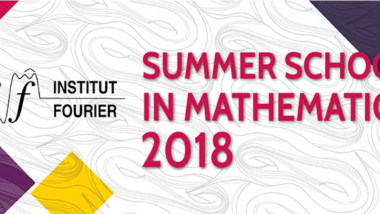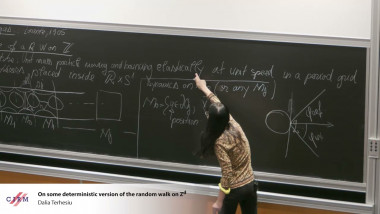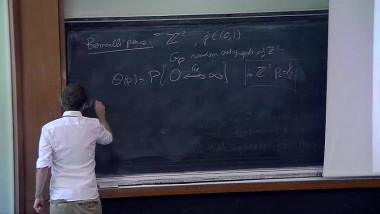Spectrum of random quantum channels
Apparaît dans la collection : Mathematical aspects of the physics with non-self-adjoint operators / Les aspects mathématiques de la physique avec les opérateurs non-auto-adjoints
The main question that we will investigate in this talk is: what does the spectrum of a quantum channel typically looks like? We will see that a wide class of random quantum channels generically exhibit a large spectral gap between their first and second largest eigenvalues. This is in close analogy with what is observed classically, i.e. for the spectral gap of transition matrices associated to random graphs. In both the classical and quantum settings, results of this kind are interesting because they provide examples of so-called expanders, i.e. dynamics that are converging fast to equilibrium despite their low connectivity. We will also present implications in terms of typical decay of correlations in 1D many-body quantum systems. If time allows, we will say a few words about ongoing investigations of the full spectral distribution of random quantum channels. This talk will be based on: arXiv:1906.11682 (with D. Perez-Garcia), arXiv:2302.07772 (with P. Youssef) and arXiv:2311.12368 (with P. Oliveira Santos and P. Youssef).















